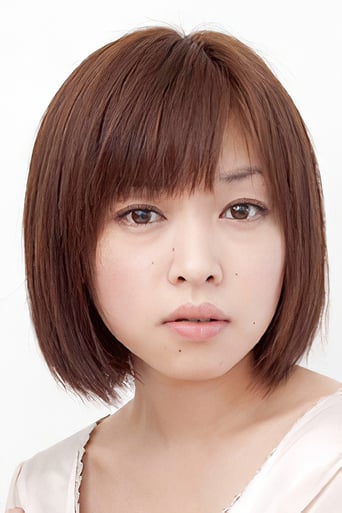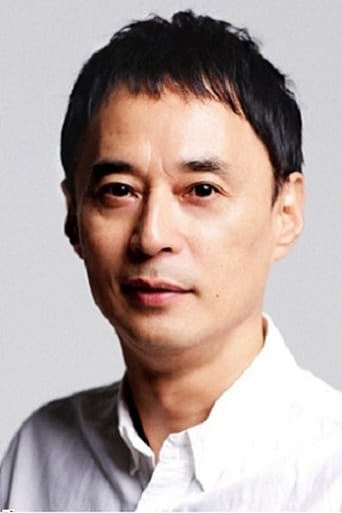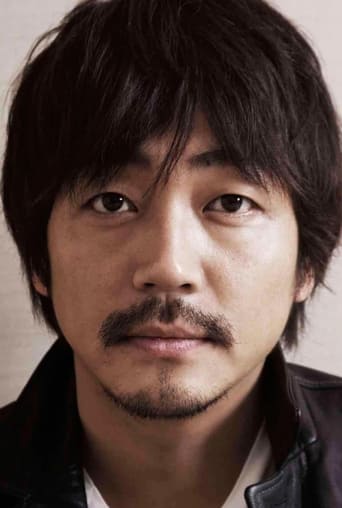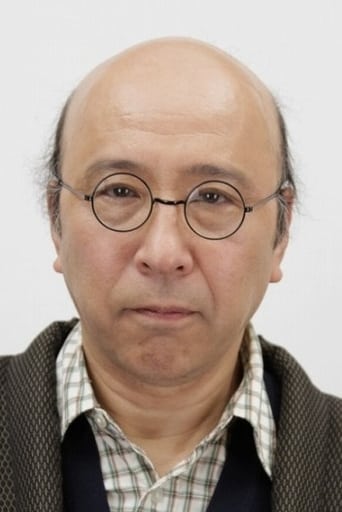Majorthebys
Charming and brutal
Ogosmith
Each character in this movie — down to the smallest one — is an individual rather than a type, prone to spontaneous changes of mood and sometimes amusing outbursts of pettiness or ill humor.
Yash Wade
Close shines in drama with strong language, adult themes.
Staci Frederick
Blistering performances.
jmaruyama
Sato Toshiki's "Yume Nara Samete..." is a dull and mediocre psychological thriller that fails to live up to Kon Satoshi's brilliant anime adaptation of Yoshikazu Takeuchi's "Perfect Blue" novel. This live action version is lifeless and boring, lacking any of the passion or emotion that was in the anime.As mentioned this film is the second adaptation of Yoshikazu Takeuchi's novel "Perfect Blue" and unlike Kon Satoshi's anime version, is said to be more closer to the original source material. Asuka Ai (Maeda Ayaka) is a fledgling model who has only a couple of "Gavure" (swimsuit) photo shoots to her credit so far. Her handler/manager is the kindly Bando (Masahiro Toda) who is determined to make Ai a major singing idol and has been grooming her for stardom. He is extremely protective of her as eight years earlier he had overseen the career of another potential idol only to see her murdered by an unknown assailant who has never been caught. Asuka tells Bando that she would like to use the song of a friend as her debut song. The song "Yume Nara Samete/To Awaken From A Dream" was written by Ai's friend Kawai Hiromi(Shimizu Yumi), a fellow classmate who went to the same talent school as Ai and who had committed suicide in front of her in humiliation over a taboo love relationship with a married teacher. While Hiromi had wanted to use the song to further her own idol aspirations, she tells Ai that she will give the song to her.As Ai prepares to make her singing debut using Hiromi's song, she meets up with timid Convenience Store Clerk Horibe Toshihiko (Omori Nao) who is Ai's biggest fan. Having grown up in the same country prefecture as Ai, he has developed an abnormal obsession for her and freely admits that he "is living her life" and goes so far as to make his room an identical copy of Ai's former studio apartment. Horibe also suffers from another biological abnormality in which his body manufactures too much Estrogen(female hormones). The results soon become physically obvious as Horibe slowly metamorphosizes into a doppleganger of Ai. Horibe confronts Ai and tells her that he will replace her as he feels "she is not the true Ai" and that he will be the true star that she could never become. However before Horibe can go through with his plans, he is killed in a knife attack. The assailant is none other than Bando's "plain jane" wife (Watanabe Makiko) who had become jealous of his constant mentoring of Ai (it is implied that she was also the one who killed Bando's previous idol client).While screenwriters Imaoka Shinji and Kobayashi Masahiro's loopy script does stay faithful to the original novel, it may not have been a good thing (to their credit Kon and screenwriter Sadayuki Murai are said to have had reservations on doing a straight adaptation of the novel and asked for permission to deviate from the story). Fans of the anime may be sad to see that many of the elements that were found in that version did not make the transfer to the live action film. Not only is the story very much different (in the anime, lead heroine Kirigoe Mima is already a successful Jpop idol with a "Perfume" like group called CHAM, before she decides to quit singing to branch out into a career in acting, whereby she not only incurs the wrath of a crazed internet fan (Uchida AKA Me-Mania) but also her deranged manager Rumi, a former idol singer herself who develops a split-personality thinking that she is the true Mima) but the tone is very much more subdued and dark.Of course what brings the entire film down are the performances, particularly Maeda Ayaka(Jisatsu Manual; Strawberry Shortcakes) as Ai. While she is cute and very much looks the part of an fledgling idol, her disinterested and almost lethargic performance is a low point and she doesn't really elicit sympathy for her character. Her rendition of Hiromi's torch song (which is supposed to be her final profession of love to her unrequited lover) is painfully off-key and pitchy. While the song itself is haunting upon first exposure, it is relentlessly repeated throughout the movie almost Ad nauseam.Omori Nao (Ichi in "Ichi The Killer") portrays yet another in a long line of odd-ball and wacky characters but does so well. His Horibe is a true sad-sack character who has hopelessly lost reality in his obsession with Ai and as a result not only gives up is own identity but his own sexual identity as well(quite different from the crazed Me-Mania and demented Rumi but equally sick in the head).Sato's direction style is very methodical and slow paced and it drags the movie down and while the film itself is relatively short at 103 minutes it seems much longer."Yume Nara Samete.." could have been an interesting "Hitchcockian" thriller if it had been done right or made similar to the anime but in Sato's hands becomes a below average thriller which tries for twisted "medical/biological horror" shocks (like David Cronenberg) but fails. Lead actress Maeda's amateurish acting and singing don't help either and further makes one appreciate the late Kon Satoshi's dynamic anime even that much more.
Danny_G13
Japanese supernatural 'chiller' is completely pointless.I didn't realise on watching this that it's based on a Manga anime movie of the same name. Some of the shots are incredibly manga-esquire though, and the quite ethereal quirky nature of it should have been a giveaway.Horibe is a reasonably young man who lives alone in an apartment, and has a fairly mediocre job part time in a convenience store. He's got a private obsession though, with a model who's barely done much work besides a single poster which is lovingly placed on the wall of the store.The model, Asaka, moves into the neighbourhood (Obviously) and goes to the store to dispatch a parcel. There she meets Horibe who can't quite believe his luck that his idol is standing in front of the checkout (Yup, this really doesn't stretch credibility does it).Asaka is also endeavouring to become a star and her manager is obsessively working away to achieve that dream, and decides she should be a singer, with a song she happens to have.All the while Horibe's obsession is growing deeper and is affecting more than just his mind.This movie is beyond strange. It reminds me of Uzumaki, which was genuinely weird but never pretended otherwise. The difference here is Perfect Blue (What the *hell* does that title mean) seems to try to be mundane, yet resides in a surreal fantasy world where nothing much seems to make much sense.There are so many little nuances here which make the story just more and more obscure, and by the end of it you're wondering what on earth the point was.This most likely worked tremendously in anime, but it should never have been remade into a live action picture.A complete waste of time.




